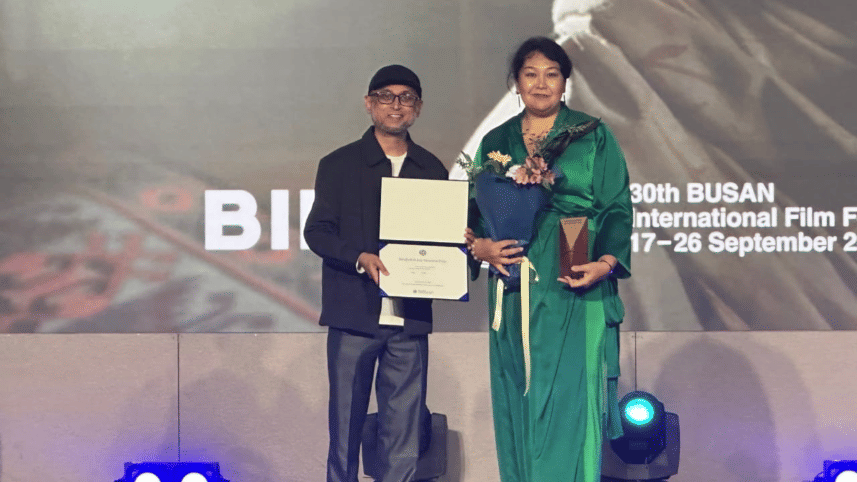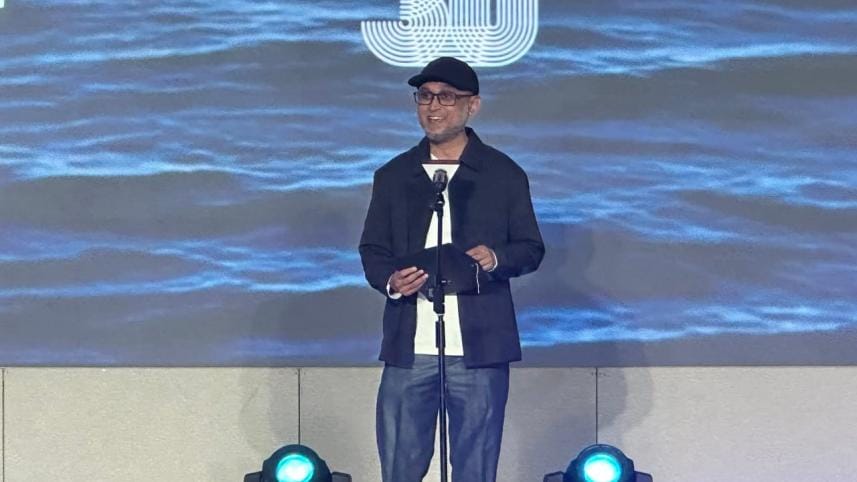‘Kurak’ clinches Bangladesh July Memorial honour

At the 30th Busan International Film Festival, the Kyrgyz-language film "Kurak" was honoured with the Bangladesh July Memorial Prize.
The award was handed to the film's co-director, Erke Dzhumakmatova, by Cultural Adviser Mostofa Sarwar Farooki. The film was jointly directed by Emil Atageldiev, who passed away last year.
To commemorate the July 2024 mass uprising in Bangladesh, the Ministry of Culture introduced the Bangladesh July Memorial Prize at the Busan festival for the first time this year. Valued at 100,000 South Korean won, the award is given under the festival's Vision programme and recognises works based on themes such as social justice, freedom of speech and expression, civil rights, and struggles against inequality.

In a Facebook post, Farooki wrote: "The inaugural July Memorial Prize, initiated by MOCA to honour the very spirit of Bangladesh's July uprising, went to Kyrgyz film 'Kurak' by Erke and Emil. They also took one more award. Indonesian film 'On Your Lap' by Reza Rahadian swept the night with four awards. The rest of the awards went to films from Korea, India, Iran and Kazakhstan. Congratulations to all the winners! Congratulations to the Busan International Film Festival (BIFF) on its 30th anniversary and a new beginning."
The week-long festival began on September 19 in the South Korean port city of Busan, and the winners were announced yesterday at the closing ceremony.
"Kurak" opens with scenes from the 2020 women's protest in Bishkek, where demonstrators were dispersed by male attackers and police arrests. From there, the story unfolds into the lives of two young women—Mirim, a secret webcam model, and Nargiza, who has just fallen in love. Their narratives intertwine with the women's rights movement, exhibitions, and archival footage of performance art, creating a sharp reflection of present realities. True to its name, "Kurak" (meaning "patchwork" in Kyrgyz), the film portrays how diverse women's voices come together to break through walls of oppression and build a powerful collective cry.



 For all latest news, follow The Daily Star's Google News channel.
For all latest news, follow The Daily Star's Google News channel. 
Comments